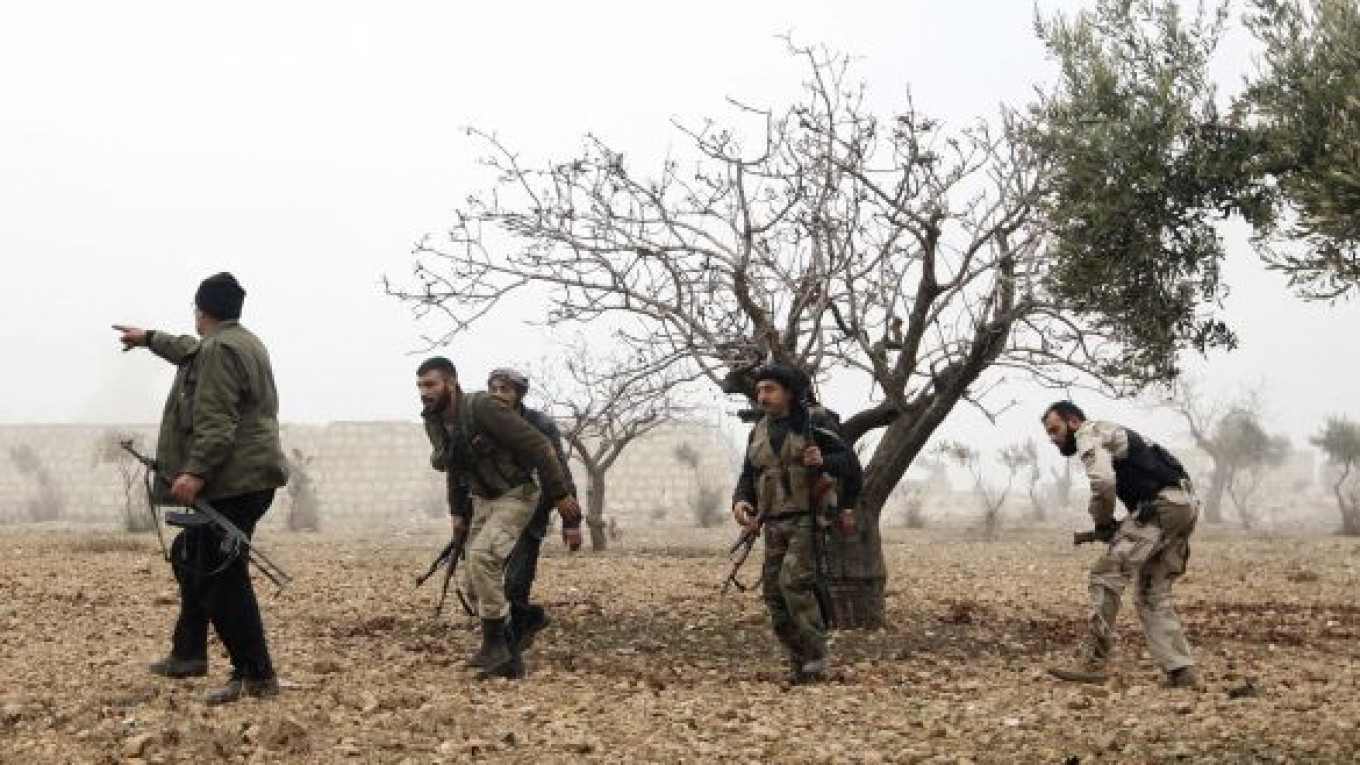MONTREUX, Switzerland — A United Nations envoy met delegations from Syria's government and its foes on Lake Geneva on Thursday, trying to salvage peace talks after an acrimonious start by focusing on local ceasefires and prisoner swaps rather than a political deal.
The first day of the talks on Wednesday was dominated by fierce rhetoric from President Bashar Assad's government and its foes. Brought together for the first time in almost three years of war, each accused the other of atrocities and showed no sign of compromise.
Wednesday's opening ceremony saw global powers vigorously defend their sides, with Western countries, Arab states and Turkey all joining the opposition in demanding a transitional government that would exclude Assad. Russia, his main global supporter, said the focus of talks should be on fighting "terrorism," a word the Syrian government applies to all of its armed opponents.
Russian Foreign Minister Sergei Lavrov played down the contentious speeches that opened the talks, and emphasized the positive: "As expected, the sides came up with rather emotional rhetoric. They blamed one another," he told reporters.
"For the first time in three years of bloody conflict … the sides, for all their accusations, agreed to sit down at the negotiating table."
Lavrov said after talks on Wednesday that the rival Syrian delegations said they would sit down for direct talks on Friday and that they should start with confidence-building measures.
Lavrov held talks with Syrian Foreign Minister Walid al-Moualem and Syrian opposition leader Ahmed Jarba on Wednesday, urging the opposition and its foreign backers not to focus exclusively on leadership change in Damascus.
French Foreign Minister Laurent Fabius, one of the staunchest backers of the opposition, said: "Hope exists, but it is fragile. We must continue because the solution to this terrible Syrian conflict is political and needs us to continue discussions."
Among the many difficulties with the process, the opposition delegation does not include the al Qaida-linked Sunni Islamist militant groups who control much of the territory in rebel hands and have denounced those attending the talks as traitors.
More than 130,000 people are believed to have been killed in the Syrian conflict, nearly a third of the country's 22.4 million people have been driven from their homes, and half are in need of international aid, including hundreds of thousands in areas cut off by fighting.
A Message from The Moscow Times:
Dear readers,
We are facing unprecedented challenges. Russia's Prosecutor General's Office has designated The Moscow Times as an "undesirable" organization, criminalizing our work and putting our staff at risk of prosecution. This follows our earlier unjust labeling as a "foreign agent."
These actions are direct attempts to silence independent journalism in Russia. The authorities claim our work "discredits the decisions of the Russian leadership." We see things differently: we strive to provide accurate, unbiased reporting on Russia.
We, the journalists of The Moscow Times, refuse to be silenced. But to continue our work, we need your help.
Your support, no matter how small, makes a world of difference. If you can, please support us monthly starting from just $2. It's quick to set up, and every contribution makes a significant impact.
By supporting The Moscow Times, you're defending open, independent journalism in the face of repression. Thank you for standing with us.
Remind me later.






